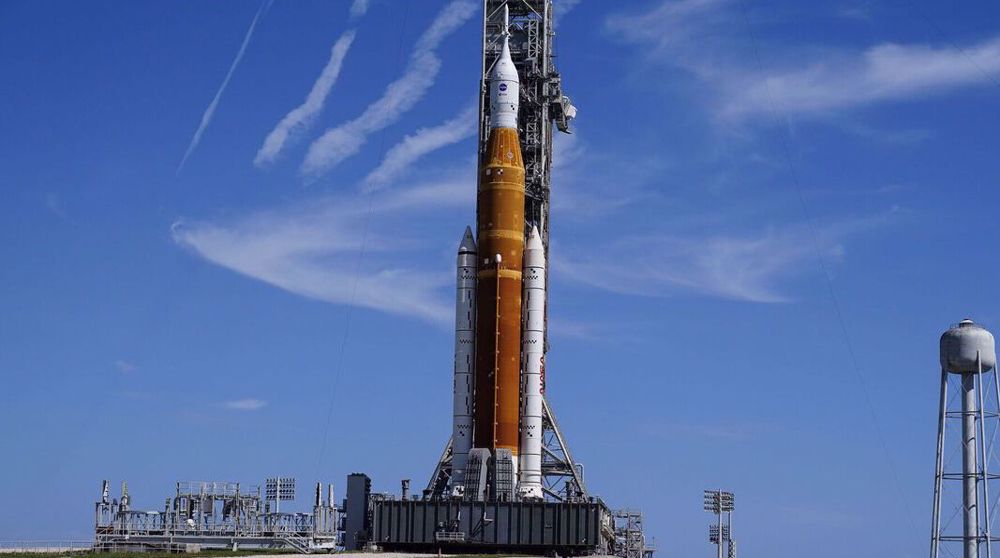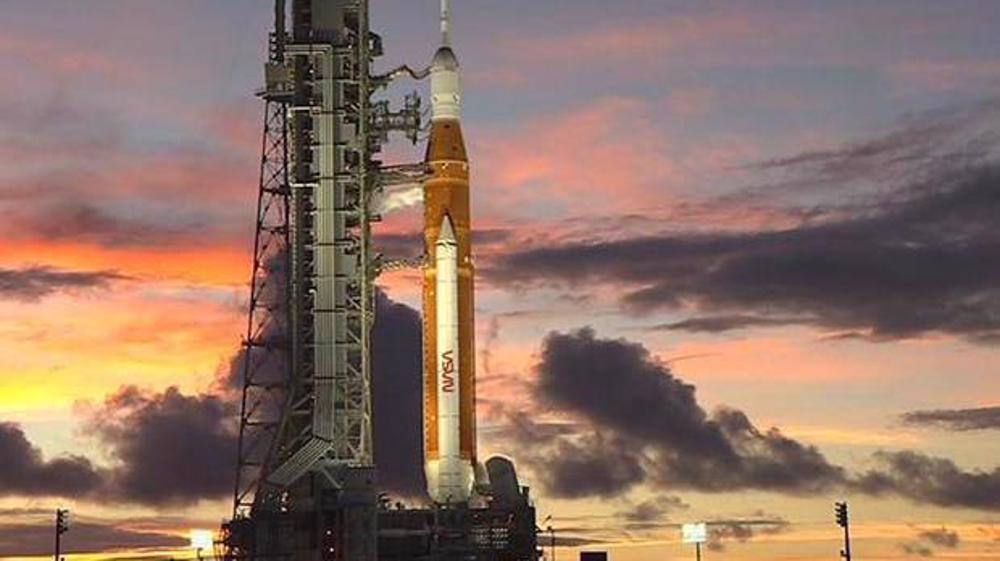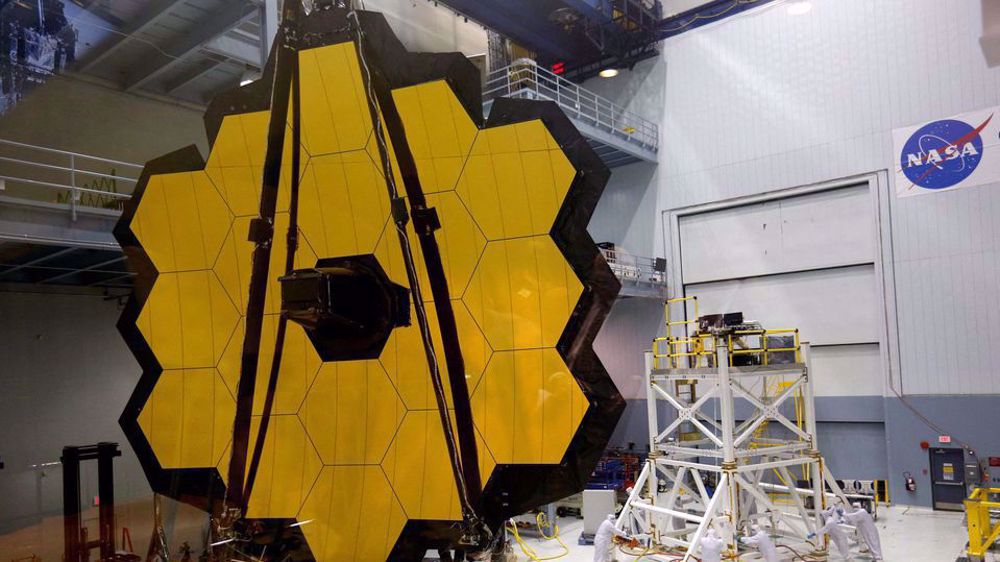NASA aborts 2nd attempt to launch moon rocket citing fuel leak
US space agency NASA has aborted its second attempt to launch the debut test flight of its massive, next-generation rocket that marked the first mission of its moon-to-Mars Artemis program, citing another fuel leak.
The latest attempt to launch the 32-story-tall Space Launch System (SLS) rocket and its Orion crew capsule into lunar orbit with test dummies was called off on Saturday following repeated attempts by technicians to correct a leak of super-cooled liquid hydrogen propellant being pumped into the vehicle's core-stage fuel tanks.
The first attempt earlier in the week was also marred by escaping hydrogen, though those leaks were elsewhere on the 322-foot rocket -- the most powerful ever built by NASA.
There was no immediate word on when NASA might try again. After Tuesday, a two-week launch blackout period kicks in. Extensive fuel leak repairs could require that the rocket be hauled off the pad and back into its hangar, possibly pushing the flight into October.
Launch director Charlie Blackwell-Thompson and her team tried to plug Saturday’s leak as they did the previous time -- by stopping and restarting the flow of super-cold liquid hydrogen in hopes of removing the gap around a seal in the supply line, local news outlets reported.
Blackwell-Thompson finally halted the countdown after three to four hours of futile efforts, leading to an announcement by NASA’s launch commentator, Derrol Nail, that “we have a scrub for the day.”
NASA intends to send the crew capsule atop the rocket around the moon, pushing it to the limit before astronauts get on the next flight. If the five-week demo with test dummies succeeds, astronauts could fly around the moon in 2024 and land on it in 2025.
Astronauts last walked on the moon 50 years ago.
The local weather cooperated early on Saturday – after days of stormy weather -- as the launch crew began loading nearly 1 million gallons of fuel into the Space Launch System rocket.
Minutes into the operation, however, hydrogen fuel began seeping from the engine section at the bottom of the rocket, violating safety rules.
During the launch attempt on Monday, hydrogen fuel escaped from elsewhere in the rocket. Technicians tightened up the fittings over the past week, but Blackwell-Thompson cautioned that she wouldn't know whether everything was tight until Saturday's fueling.
Even more of a problem on Monday, a sensor indicated one of the rocket's four engines was too warm, but engineers later verified it actually was cold enough. The launch team planned to ignore the faulty sensor this time around and rely on other instruments to ensure each main engine was properly chilled.
Mission managers accepted the additional risk posed by the engine issue as well as a separate problem -- cracks in the rocket's insulating foam. However, they acknowledged that other problems, such as fuel leaks, could prompt yet another delay.
The $4.1 billion test flight is the first step in NASA's Artemis program of renewed lunar exploration, named after the twin sister of Apollo in Greek mythology.
Twelve astronauts walked on the moon during NASA’s Apollo program, the last time in 1972.
Artemis — years behind schedule and billions over budget — intends to establish a sustained human presence on the moon, with crews eventually spending weeks at a time there. It is considered a training ground for Mars.
Iran pursuing broader cooperation with African nations: Pezeshkian
Israeli minister threatens to seize entire Gaza if Hamas refuses to disarm
VIDEO | Gaza teacher starts ‘Little Wings’ initiative to bring joy to kids
Spanish FM urges firmer EU stance on Gaza crisis, West Bank settlement expansion
Israel ‘serious obstacle’ to nuke-free West Asia: Iranian diplomat
High-profile Israeli-American brothers on trial for sex trafficking and assault
Settlers served lavish lunch in Israeli prison holding fasting Palestinians
VIDEO | Press TV's news headlines













 This makes it easy to access the Press TV website
This makes it easy to access the Press TV website